Some companies have been finding ways to implement AI in their organizational process to improve their workers’ productivity.
In this article, I’ll review everything about how AI can be used to improve work productivity: use cases, benefits, and examples of companies that are utilizing AI to save time, increase efficiency, and make better decisions.
TL;DR
- The best use cases for AI to improve work productivity are the ability to generate quality text, automate repetitive tasks, research, and make predictions.
- The main benefits of using AI to enhance productivity in the workplace include saving time from time-consuming tasks, improving decision making and boosting productivity.
- A popular example of organizations using artificial intelligence to improve productivity is Iron Mountain, which uses Einstein AI to suggest replies and articles to help its agents resolve more customer support issues.
- The best AI tools to improve work productivity are Team-GPT, Einstein AI, and BoostUp due to their ability to assist employees in content creation, analyzing data, and making predictions.
How Is AI Being Used To Improve Work Productivity?
I’ve found that AI has been used at large enterprises to improve worker productivity for tasks, such as:
- Automating repetitive tasks, such as data entry and scheduling.
- Drafting emails, writing content, and producing presentations from scratch.
- Forecasting and predicting results, required maintenance, or deal value.
As AI can generate text and analyze data at scale, corporations have been using AI not to replace their high-skilled workers, but to increase productivity.
For example, your workers can use generative AI platforms like Team-GPT and Perplexity to research topics or draft emails.
Alternatively, you can use sales tools like Einstein and BoostUp to make predictions about deal value and spot opportunities in your pipeline.
💡 Later in this guide, I’ll explore different use cases and some examples of organizations that have successfully utilized artificial intelligence for task automation and content generation.
What Are The Benefits of Using AI To Improve Productivity At The Workplace?
The main benefits of using AI to improve productivity include being able to save time from manual data entry, boosting productivity, and improving decision-making.
Let’s go over each one of them 👇 in detail.
#1: Save Time
Artificial intelligence can help your organization save time by automating repetitive tasks for your skilled workers, such as scheduling emails.
➡️ It can also save hours for your marketing department by generating social media, email, and SEO-optimized article content for them.
#2: Improve Decision-Making
AI technology can analyze large amounts of data and help your team make smarter decisions.
➡️ For example, companies like Ford have been leveraging AI to monitor their supply chain for potential risks, such as supplier delays or geopolitical events.
#3: Boost Productivity
According to MIT, generative AI can improve a highly skilled worker's performance by nearly 40% compared to workers who do not use the technology.
➡️ For example, companies like Amazon have integrated AI into their logistics and supply chain operations to increase their fulfilment efficiency.
The retailer uses an AI-powered algorithm to analyze large amounts of data in real-time to optimize their inventory management.
6 AI Use Cases For Work Productivity
Here are the 6 best use cases of AI for work productivity from the ones I’ve seen work best:
#1: Writing
My favourite use case of AI for improving productivity at the workplace is being able to generate all sorts of content for different departments.
- For marketing teams: AI can generate email marketing campaigns, produce SEO-optimized content, and write social media copy.
- For sales teams: AI can draft email replies and follow-ups, and generate proposals.
- For data analysts: AI can draw conclusions from data and generate reports.
According to a recent study, organizations that use AI for content creation see a 60% increase in productivity and a 30% improvement in content quality.
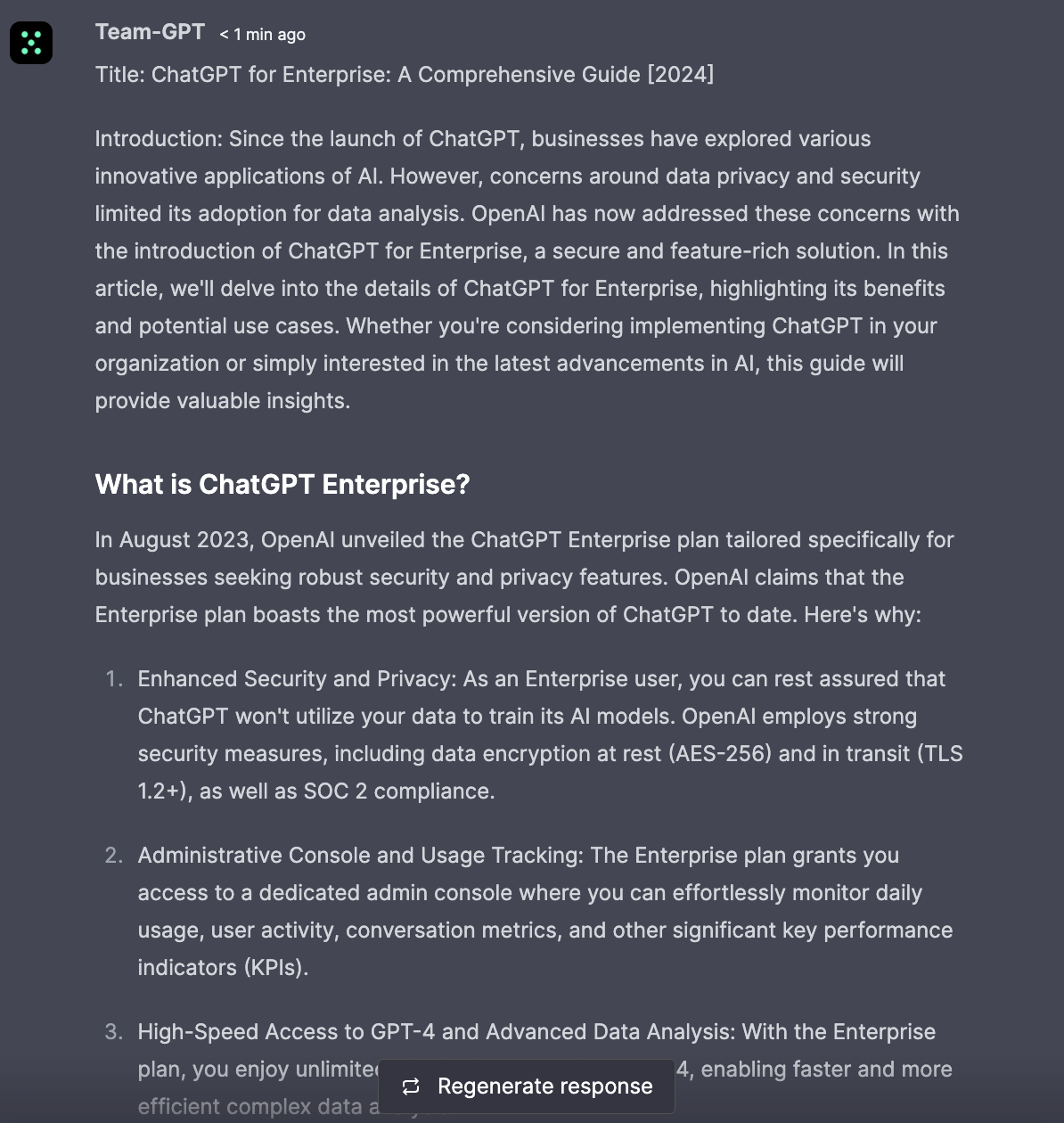
💡 Tools like Team-GPT (our tool) let you further improve your content quality and humanize it by creating custom instructions for your preferred AI model, such as ChatGPT.
Here's how you can write articles in about 3 minutes inside of Team-GPT alongside your team:
Your organization can add instructions for brand voice, language, and writing style to make sure that you can scale your content production without having to heavily edit it.
Alternatively, platforms like Jasper AI let you access pre-made writing prompts to write optimized SEO content and offer integrations with SEO tools like Surfer SEO.
#2: Automating Repetitive Tasks
AI can be used to automate repetitive tasks so your workers can focus on higher-value tasks.
The technology can be trained to execute complex tasks without the need for human intervention by following pre-defined rules and adapting to real-time changes.

For example, AI technology can automate customer service tasks, such as responding to commonly asked questions.
As 90% of consumers expect a swift response from customer service representatives, AI can bridge that gap by answering on your behalf questions, such as ‘’how can I return this product.’’
#3: Researching
Probably my favourite use case of AI is the ability to research complex topics.
Your team can improve their productivity by getting instant answers to their complex questions.
The technology can synthesize and research information from across the internet (or your in-house information) and explain it to your team in simple terms.
Generative AI tools like Perplexity and Team-GPT can help you research topics, learn more about complex topics, and educate your team on technical topics.

#4: Forecasting & Predicting
AI can also be used to make predictions and forecasts based on the data that it has collected about your business and the external environment.
For example, AI can help sales teams with predictive lead scoring.
The algorithms analyze historical data to identify the characteristics and behaviors of a high-quality lead.
The technology can run predictive models to make almost accurate predictions about prospect quality or expected performance.
This use case of AI is also being used in manufacturing (forecasting inventory levels) and business development (personalized quotas to each sales rep).
💡 With tools like Team-GPT, your organization can predict and handle quality-related issues before they can impact your bottom line.
Our platform lets you maintain high data quality standards that directly influence your decisions.
#5: Data Analysis
In our guide on how organizations are using AI for data analysis, we covered that AI can be used to improve productivity by:
- Identifying patterns in large data sets.
- Generating unique insights.
- Making predictions based on historical and collected data.
- Recommending courses of action to your team based on the data collected
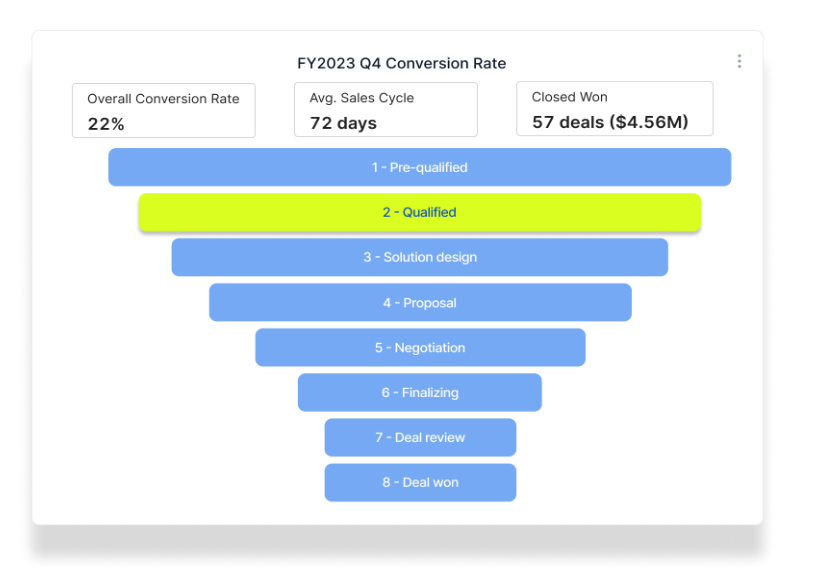
The way it works is that AI uses machine learning algorithms and deep learning to extract patterns from data and to get insights from unstructured data.
For example, you can feed your data to a Custom GPT model that can analyze it for you and extract results.
#6: Internal Search
Last but not least, organizations can improve their document discovery by using AI-powered document search software in their internal network.
Large corporations have vast amounts of data, which makes it difficult for newer employees to find what they are looking for.
That could result in wasting time searching for information that could otherwise suffice by asking an AI chatbot.
Platforms like Einstein AI (more on that tool later) can extract information from your internal knowledge base for your team to generate summaries and hand out detailed answers with links to the original documents.
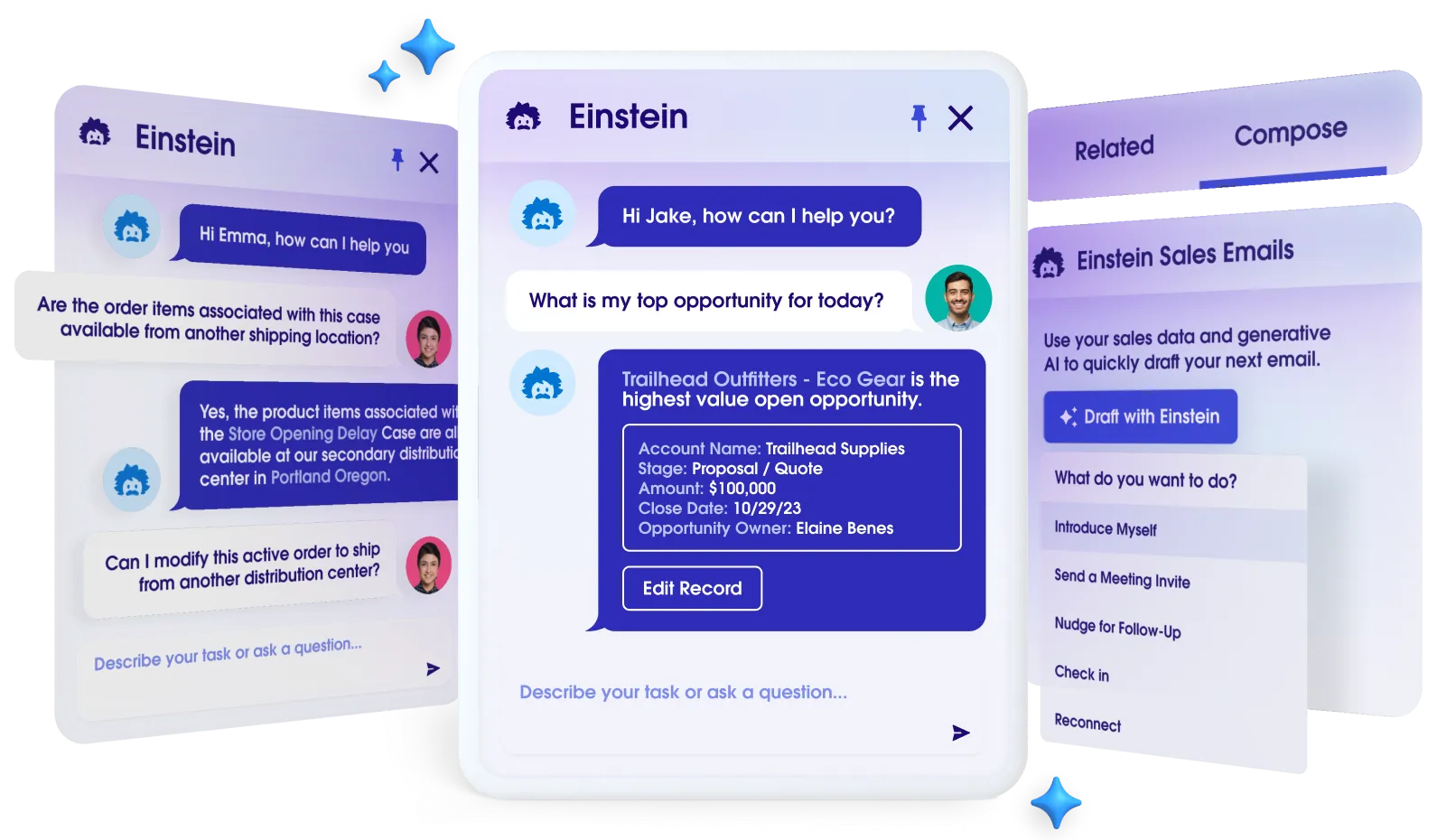
5 Examples of Organizations Using AI For Work Productivity
Here are the best 5 examples of organizations using artificial intelligence to improve their work productivity that I was able to find:
#1: IBM
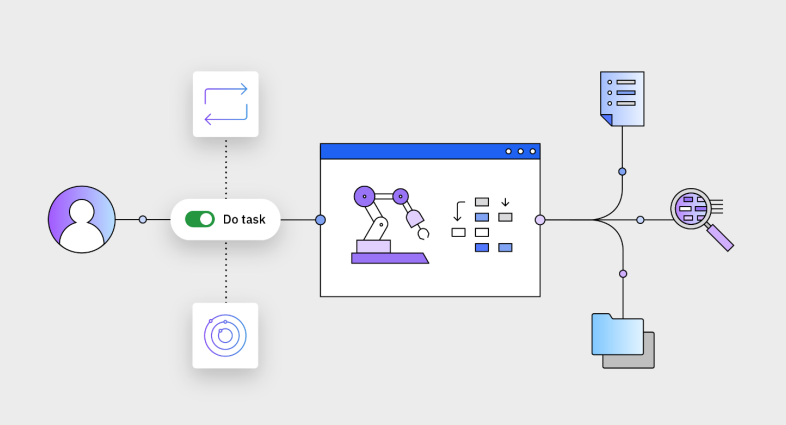
IBM, an American multinational technology company, has started using Robotic Process Automation (RPA) to streamline some of its business processes.
The corporation has been automating repetitive tasks, such as:
- Data entry.
- Customer support service.
- Transaction processing.
RPA technology possesses low-code capabilities to build automation scripts and can be integrated with enterprise applications.
This has allowed them to save time, improve data quality, and enable their workers to focus on higher-value tasks.
#2: Iron Mountain
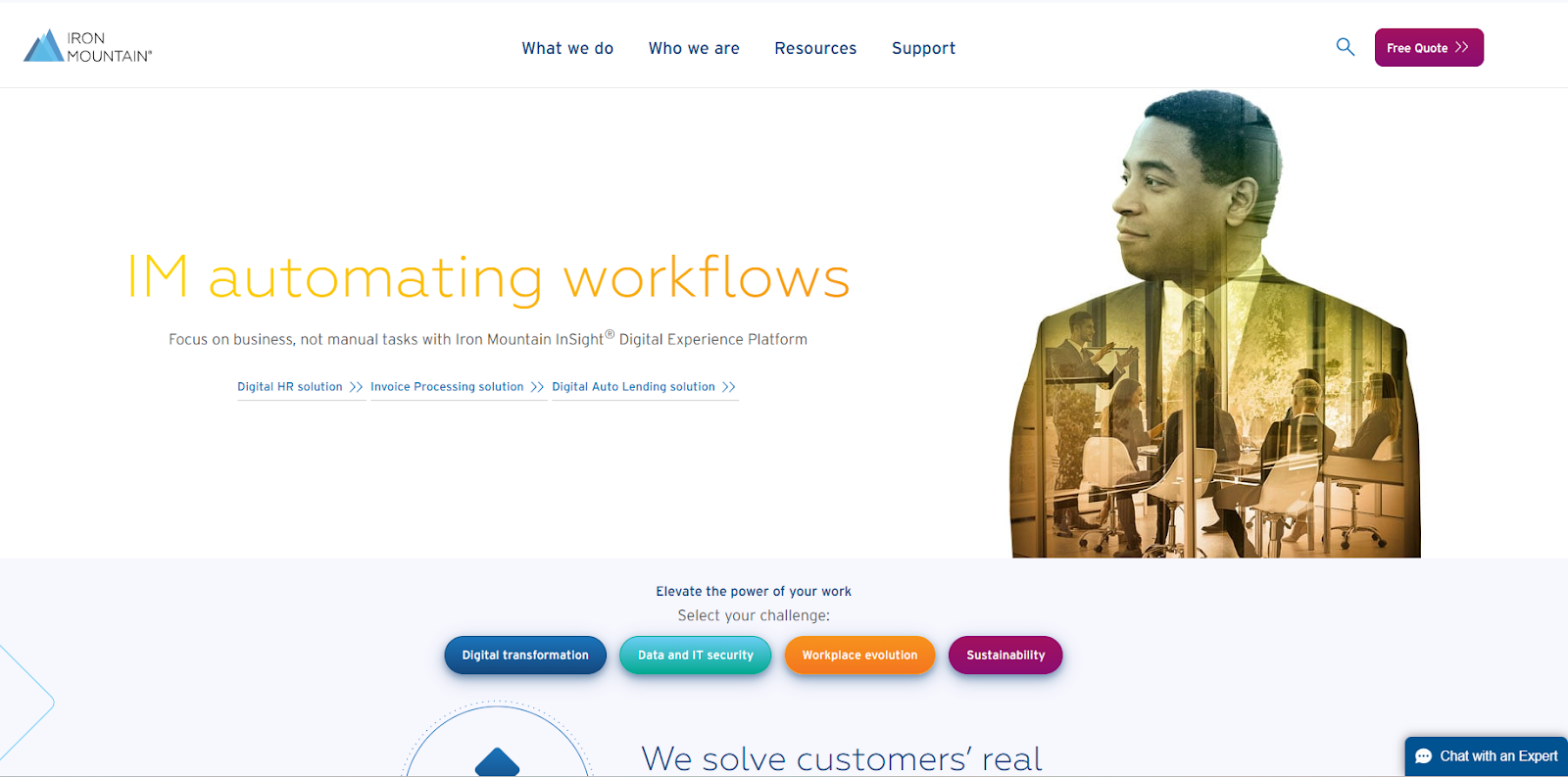
Iron Mountain has improved its productivity after utilizing Einstein AI to suggest replies and articles to help its agents resolve more customer support issues.
The brand struggled with manual orders and case resolution that were slowing down their customer support.
This is when they used Einstein AI to automatically generate personalized case replies that are based on past cases and the internal knowledge base.
In terms of results, the brand saw an 8% reduction in repeat calls, a 10% decrease in average handle times, and a 70% decrease in chat abandonment rates.
#3: General Electric
General Electric (GE) uses AI to predict maintenance needs before they become a problem in the first place.
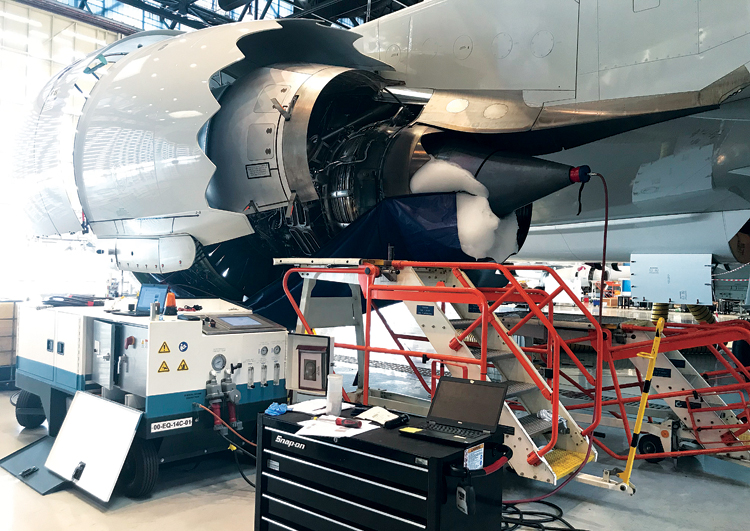
The aerospace giant utilizes AI technology to monitor their jet engines’ performance and quality so they can predict when they are likely to malfunction.
They are collecting data from all 44,000 of its in-service engines during every flight and then combining that data with physical models and environmental details to predict issues.
This has helped General Electric to improve its jet’s safety and reliability and reduce the risk of something going wrong when flying.
#4: The Washington Post
The Washington Post, a popular publisher in the US, utilizes AI to produce short-form news reports and updates on their social media channels.
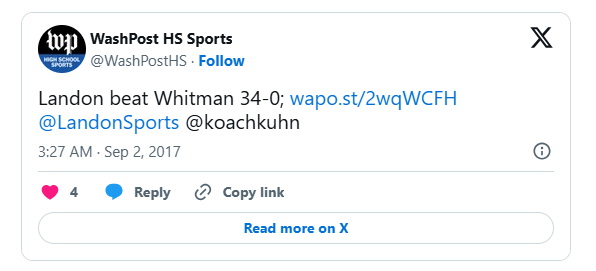
This has allowed the publisher to scale their content production on social channels and free up time for their journalists to spend time on more stories at the same time.
The news corporation has fed its AI algorithm its policies, brand guidelines, and writing styles to ensure quality content quality without sacrificing quality.
#5: Coca-Cola
Coca-Cola wanted to improve the quality of its inventory management and be able to predict demand, which is why it implemented an AI sales forecasting system.
The brand is now able to better manage its inventory during key events, promotions and holidays, and predict demand with better certainty.
The way they did it is that the organization implemented IoT sensors and AI to gain real-time insights into inventory levels, production rates, and distribution logistics.
As a result, Coca-Cola has improved its forecasting accuracy by over 20%.
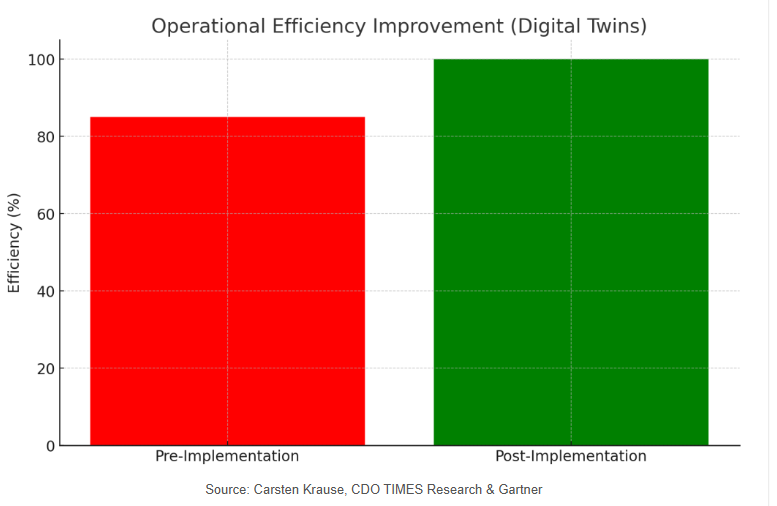
Best AI Tools To Improve Work Productivity
Now that we’ve covered the main benefits and use cases of AI for how it can improve your team’s productivity, it’s time to explore the best tools for that.
I considered the main use case (how they can save you time), their standout features, and the quality of output.
#1: Team-GPT
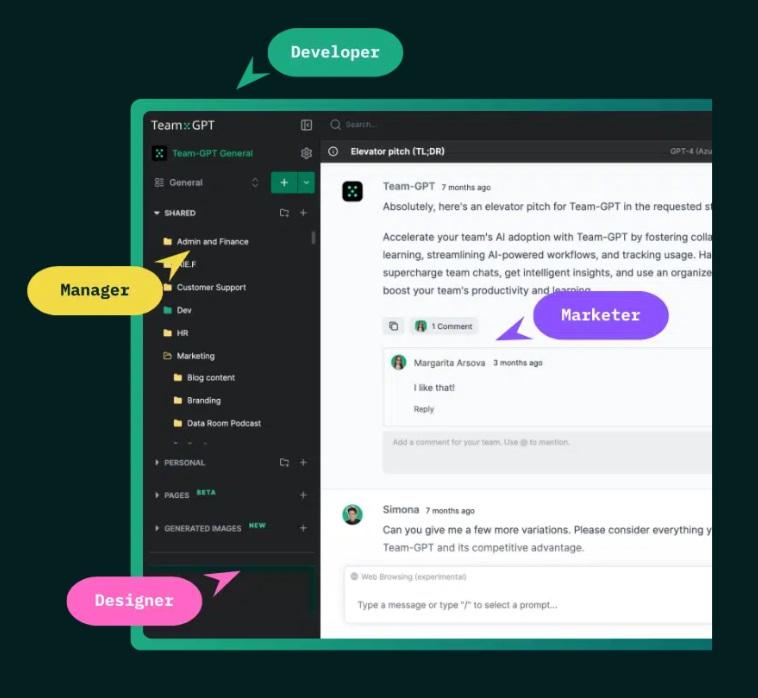
Team-GPT is an AI productivity tool for teams that lets you collaborate with different AI models without ever leaving the platform.
Our tool allows you to collaborate securely with your team members using platforms like Claude, ChatGPT, and Perplexity.
You can boost your team’s collaboration with our real-time generative AI collaboration and organizational features.
Team-GPT gives your team an interactive workspace in which you can collaborate in chats, prompts, and threads in real-time.
Your team can master AI with our shared learning path feature, allowing you to share insights and support each other.
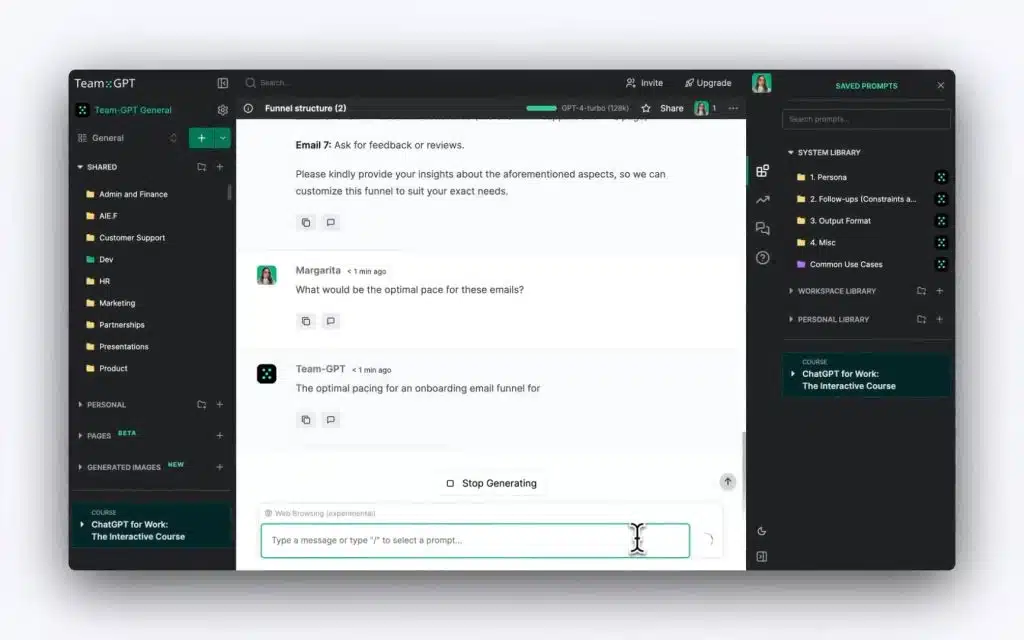
💡 Within the team chats, you can organize your information in folders and sub-folders to find the information you need at any time.
You can see the interactions that their teams are having with the AI and be able to join them.
Customize a Better Version of ChatGPT
You can use ChatGPT with your team on Team-GPT’s platform and customize it to your needs.
After that, you can use your version of ChatGPT for writing and productivity tasks, such as:
- Drafting SEO-optimized article briefs.
- Writing social media posts and email campaigns.
- Editing and finalizing articles with Pages and Edit with AI.
- Generating ad copy for advertising campaigns.
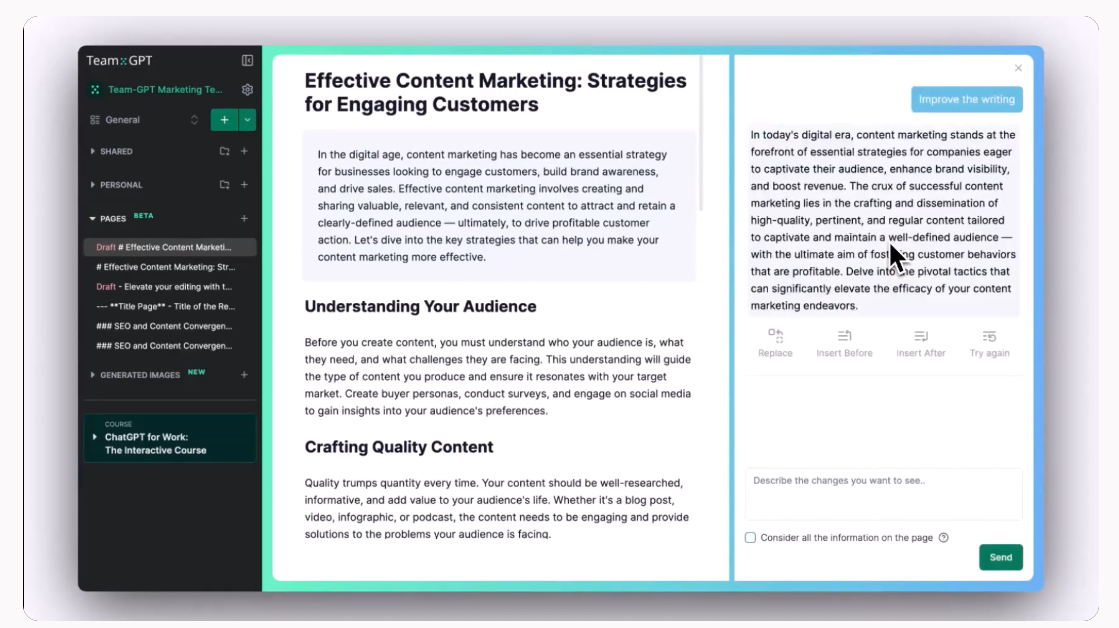
Here’s why teams love our platform:
- A shared workspace: Collaborate in chats and documents in real-time from a single platform with your team.
- Smart AI-powered editing for improved writing, fixed grammar, and refined text.
- Organized and shared content, ensuring quick access to chats and pages for all your team members.
- Managing your content by turning any chat into a document or starting a new conversation from a Page.
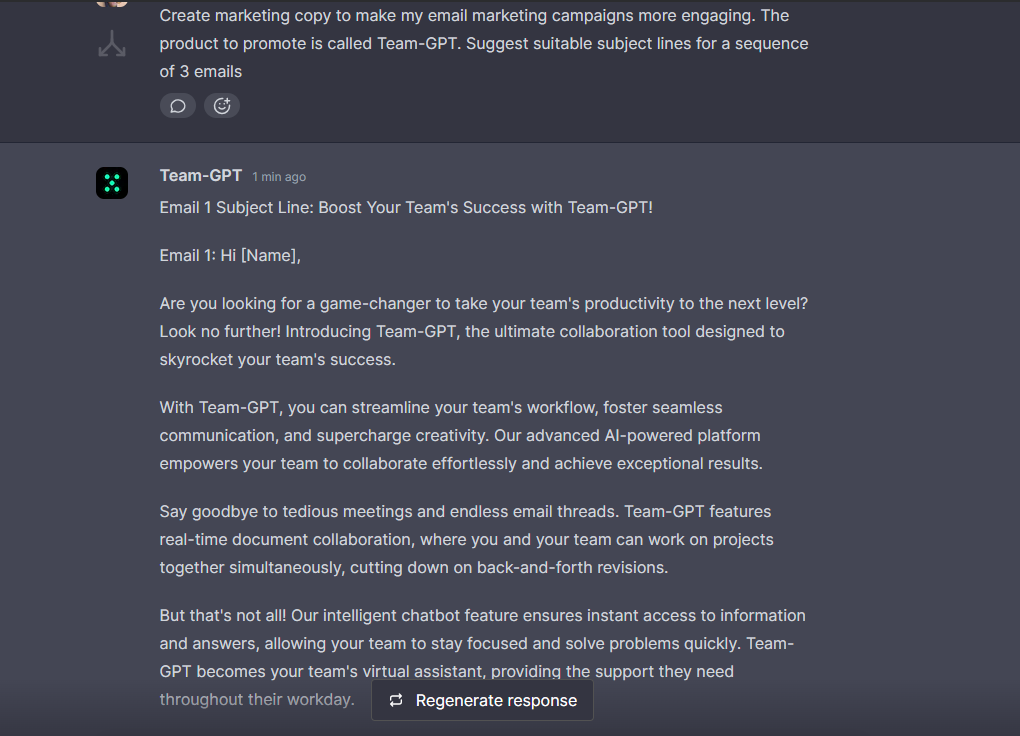
#2: Einstein AI (Salesforce)
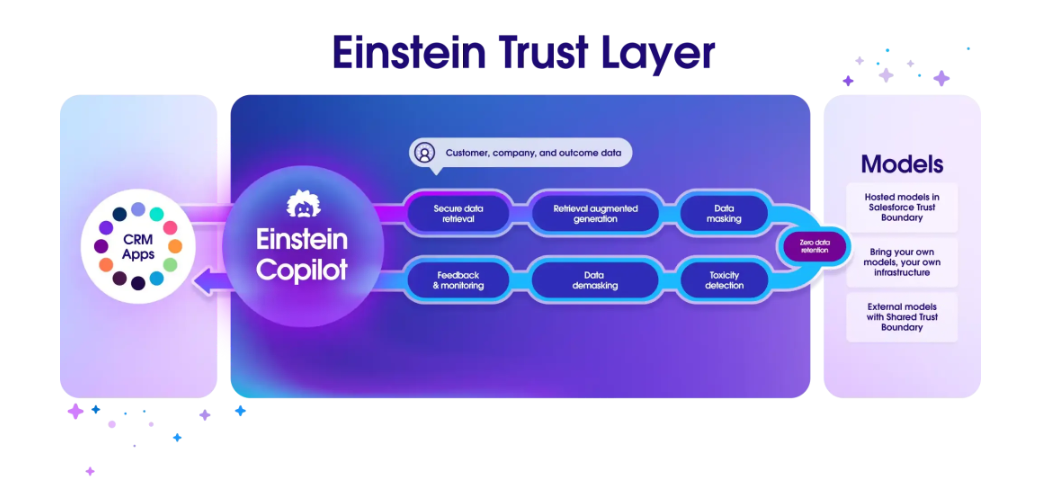
Einstein AI, a product of Salesforce, helps you make better decisions with its sales analytics platform and to set up workflow automations.
The platform lets you improve work productivity by building scalable sales processes that help you save time and money (e.g., setting up Slack notifications).
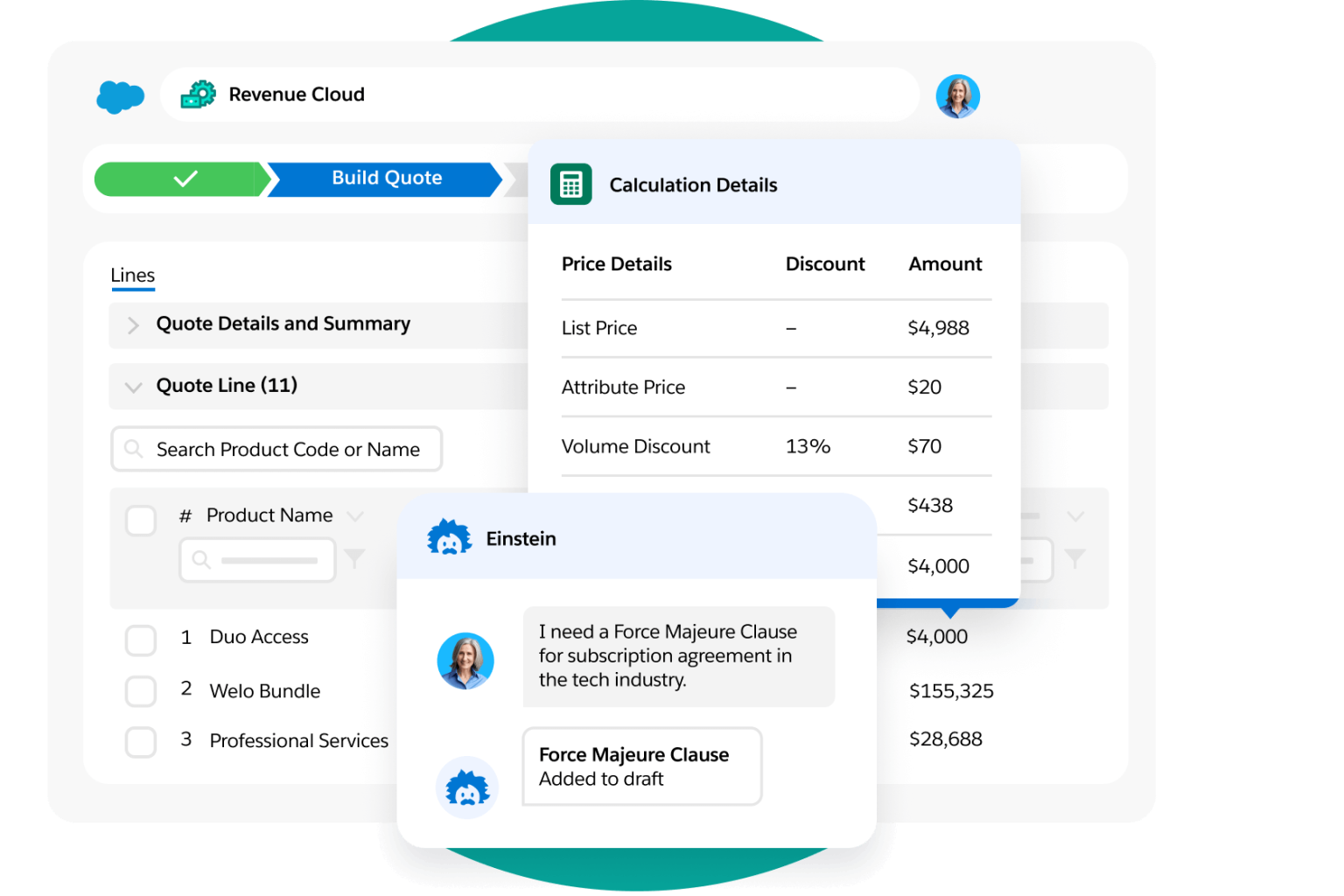
You can use Einstein for:
- Customer service: Boost your customer support agent productivity by surfacing relevant information during customer support interactions.
- Marketing: Your organization can drive personalization and productivity with predictive and generative AI to build customer journeys.
- Sales: You can ask Einstein to write emails enriched with customer data or to generate concise summaries of sales calls.
#3: Perplexity
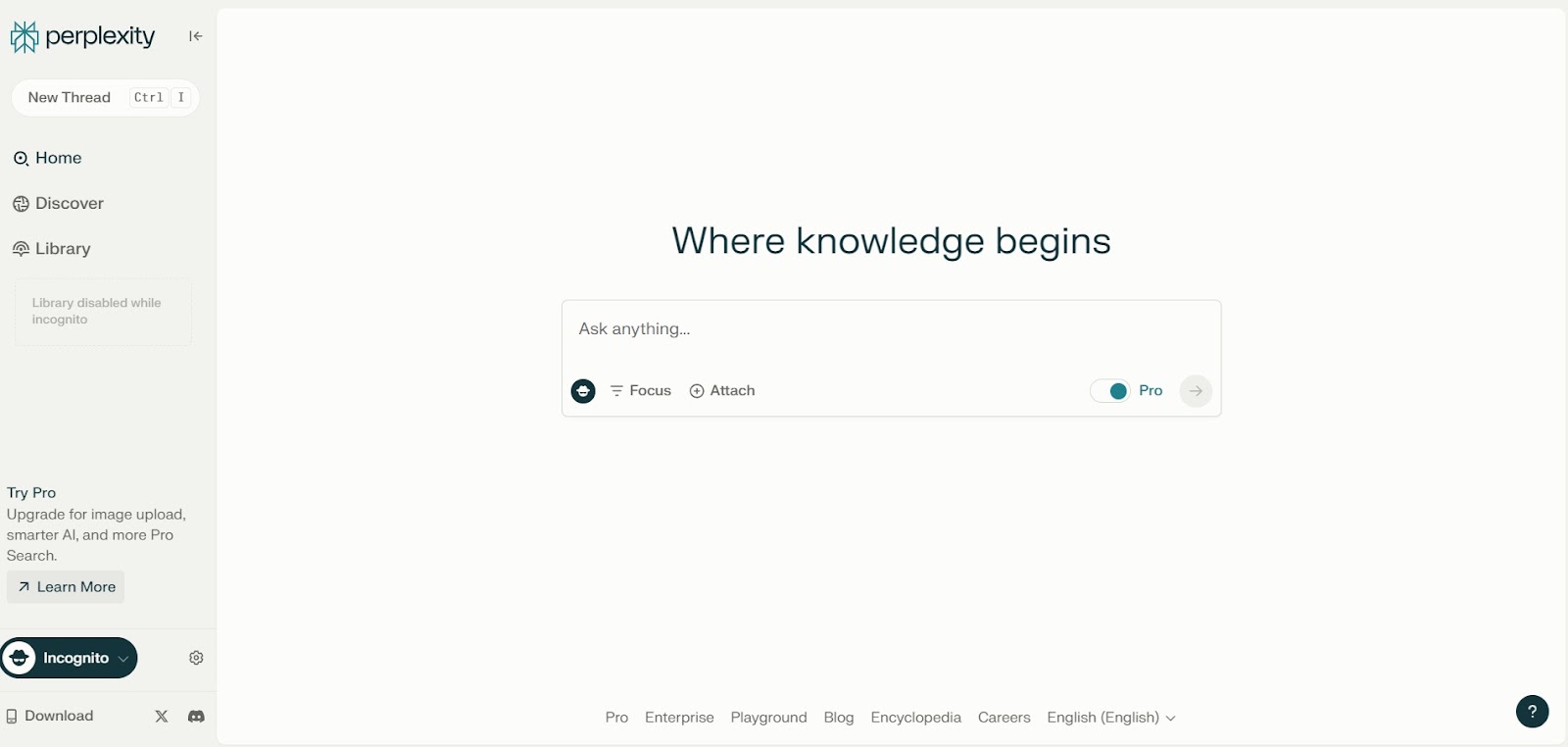
Perplexity has been my favourite AI model for content creation, as the platform has above-average trainability and is good at researching topics.
The tool helps you improve productivity in the workspace by generating content, imagery, and code for different departments at your company.

The AI content creation tool can be used for:
- Researching topics in-depth to upskill your workers or to produce article content.
- Generating article content that is optimized for SEO. The platform can also generate images and code.
- Analysing PDFs, CSV files, images, and text documents to help you get insights and summaries.
#4: BoostUp
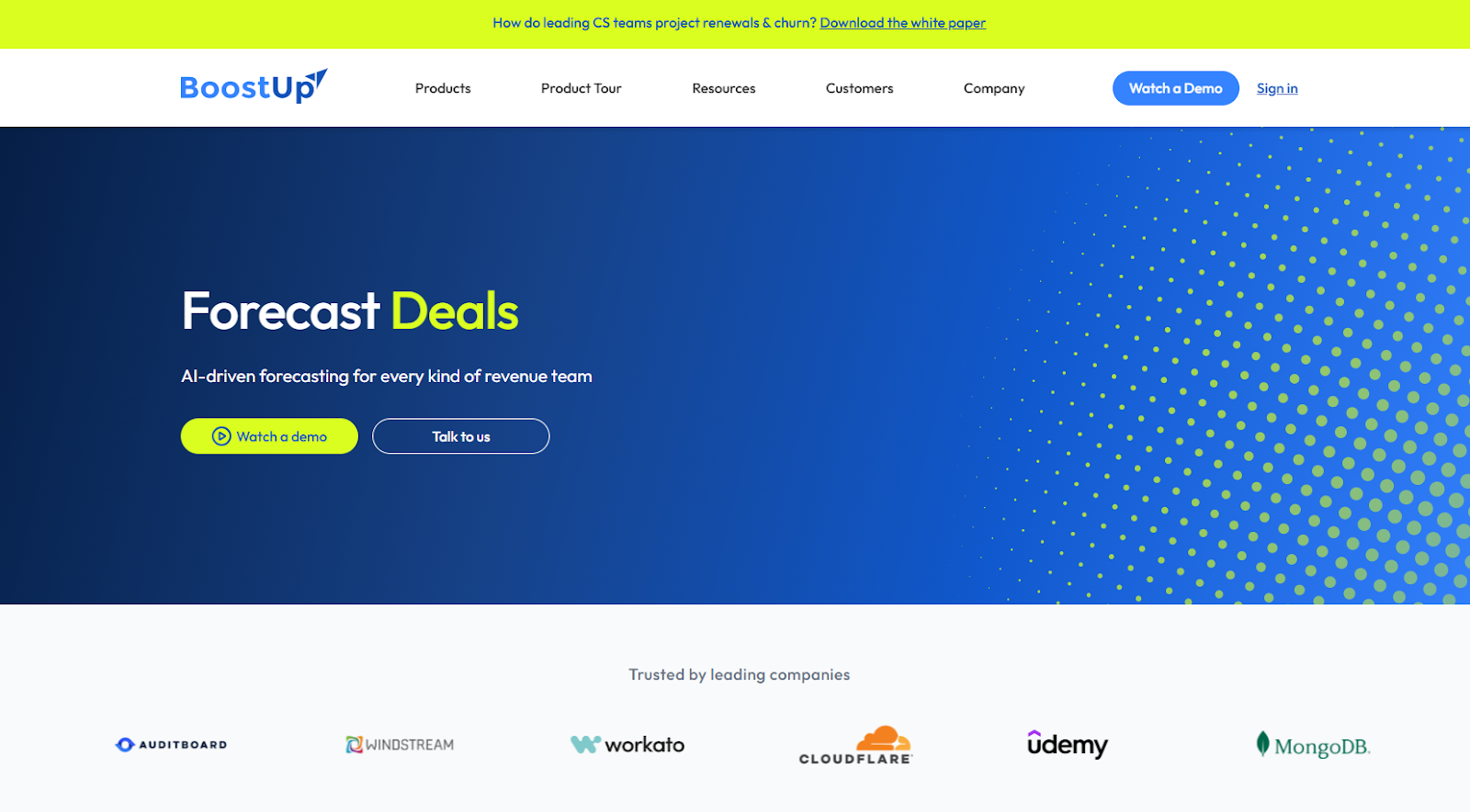
BoostUp is a productivity tool built for sales teams that lets you forecast deals, revenues, and renewals, and give you insights into which clients could leave your brand.
The platform offers analytics and insights into your sales pipeline with prospects and existing clients to identify deals at risk.
➡️ Even though the brand does not disclose its pricing, I found the product to be particularly liked by large enterprises when I checked their reviews on G2.

Here’s how BoostUp can improve the productivity of your sales team:
- Get access to forecasts on sales pipeline and current accounts with the tool’s smart deal inspection.
- Be able to contact the right person when pitching to a company and quote them the right price at the right time, with the tool’s advanced machine forecasting.
- Find growth opportunities within your existing clients with the platform’s revenue insights.
#5: Jasper AI
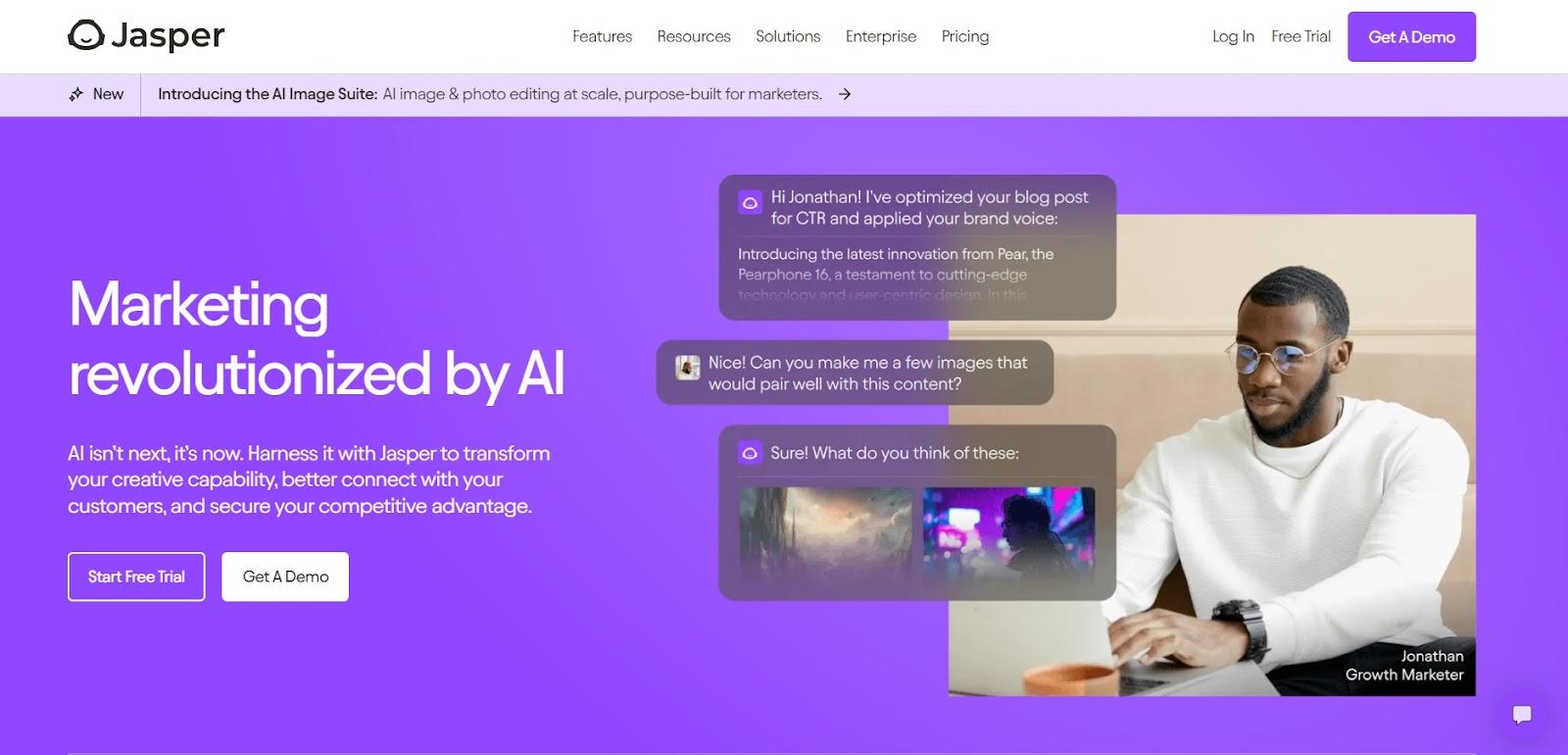
Jasper AI is a content creation tool that helps your team scale the creation of blogs, advertising copy, social media posts, and emails.
What stood out to me about Jasper AI is that the tool features a template library with 50+ pre-made writing prompts that you can choose from.

Here’s how Jasper AI can improve your team’s productivity:
- Use the tool’s template library to generate documents, articles, and advertising copy within seconds.
- Generate SEO-optimized article content that adheres to your brand’s writing style and guidelines.
- Generate images and edit them to create on-brand visuals.
Next Steps: Improve Workplace Productivity Alongside Your Team on Team-GPT
You can save time and generate quality output (from emails to articles) with Team-GPT alongside your team in a collaborative environment.
Our enterprise AI software lets your team generate text, and images, and analyze data by utilizing various AI models like ChatGPT, Claude, and Perplexity.
Apart from that, you can access:
- A comprehensive pre-made prompt library to create efficient workflows.
- Detailed usage analytics to track employee engagement.
- Enterprise-grade security ensures data privacy and the ability to host the platform on your servers.

